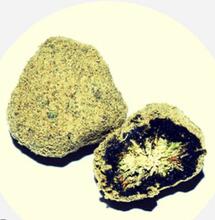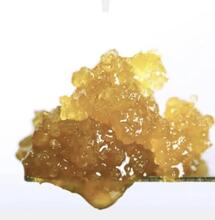What is THC Tolerance?

Repeated cannabis consumption leads to "tolerance." Stop using cannabis and the brain recovers quickly, generally within weeks.
THC activates CB1 receptors which makes you stoned. The high you feel is an irregular increase in the activity of CB1 receptors. Once the THC dissipates, the activity returns to standard levels.
However, if you continually expose the brain to THC, the brain takes measures to reduce the increase in CB1 receptor activity. First, it fights back so that standard CB1 activation patterns are maintained. In doing so, CB1 receptors are reduced as these mechanisms work to dampen the influence of THC. This means that you must consume more to achieve the initial high. This is tolerance.
Desensitised receptors are still available for the THC to bind to; however, when it does secure, the impact is lower than it was. Imagine that CB1 receptors are like a baseball pitcher playing many games. Eventually, the pitcher's muscles wear and age, and they can't throw the ball as hard as they once did. As a result, the coach pulls the pitcher out of the game.
Similarly, proteins within the cell act like the coach to remove weak and desensitised receptors. Desensitised CB1 receptors are detected by components within the cell that signal to additional elements within the cell to remove the receptor, so it is no longer "in play".
As a result, the more THC you consume, the less of an effect it will have on brain function because there are fewer receptors for it to act upon. How quickly you will develop tolerance to THC depends on the amount you consume, your use history, and your DNA. This can vary enormously across individuals, and our best understanding of the subject comes from studies on mice.
Mice given two daily injections of THC at 10 mg/kg appeared to develop tolerance to THC's effects after just 36 hours (i.e., 3 THC injections). Tolerance to THC's soothing effects was more substantial than to its pain-relieving products. This suggests that separate brain cells or brain regions are more sensitive to tolerance than others.
The THC injections were stopped after a week to measure the recovery period. The study found that the behaviour in the mice normalised in under 14 days. Results also showed that tolerance to the sedative effects of THC recovered quicker than its effects on pain.
In comparison with other recreational drugs, cannabis is unique in the speed at which the brain "recovers" following a period of abstinence. A study of cannabis users who used the substance at least once a day reported that those users had reduced CB1 receptors compared to non-users. This increased to approximately average levels following just two weeks of abstinence.
Notably, this study didn't evaluate whether CB1 receptors remained desensitised. However, further research indicated that withdrawal is more extreme when there are fewer CB1 receptors available for THC to bind to. This suggests that tolerance is indeed the internalisation of CB1 receptors.










